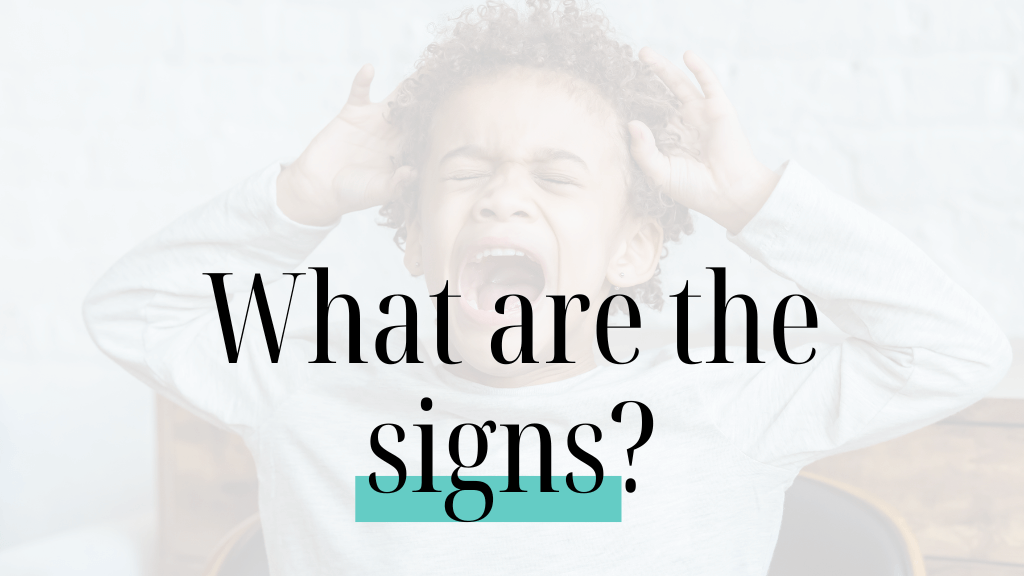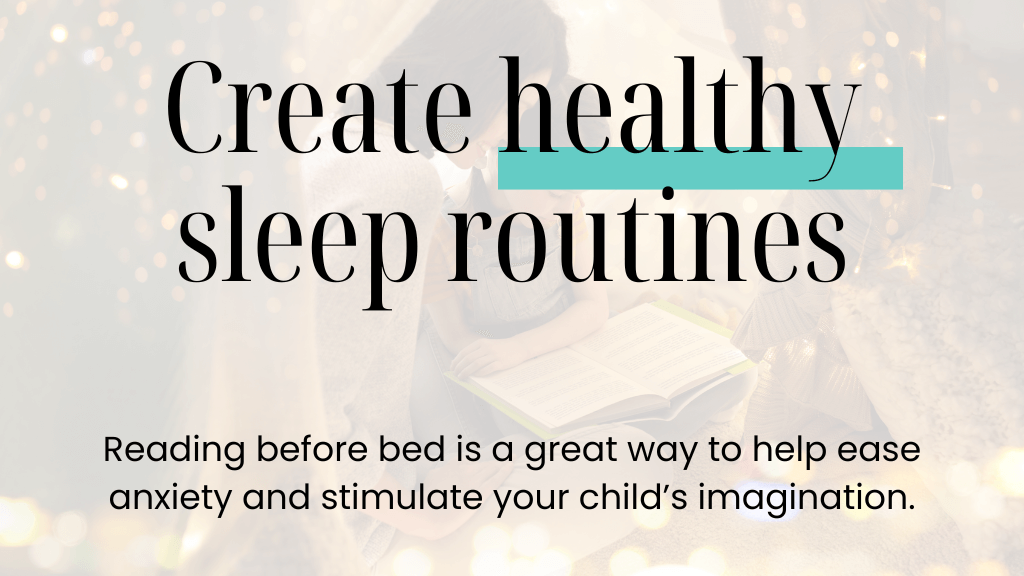How to help your child overcome anxiety about school

Starting school can be an exciting milestone for many children, but it can also trigger anxiety and nervousness. As parents, helping your child overcome anxiety about school is essential for their emotional well-being and academic success. While some anxiety is natural, excessive worry can negatively impact your child’s self-esteem and daily functioning. In this blog, we’ll explore practical strategies to help your child manage and overcome anxiety related to school, ensuring they feel confident and supported in their educational journey.
Table of Contents
What is anxiety?
Anxiety is a feeling of worry, fear or distress, usually related to future events or possibilities. A small amount of anxiety and nervousness is good and could even be beneficial in many instances. For example, when your child feels anxious about doing well on an exam it may motivate them to prepare better.
Anxiety can trigger negative patterns of thinking and behaviours that tend to spiral and intensify, leading to more serious and unhealthy outcomes. Often, the thoughts generated about one anxiety-inducing event cause your child to create negative/limiting beliefs that are unhealthy or unhelpful when applied to other situations.
Excessive anxiety often creates beliefs that sound like this:
“If I do well on this test, my parents will be proud of me.”
“If I fail this test my friends will think I’m dumb.”
“If I can’t get a good mark on this math test then I will never be an astronaut.”
“If I can’t do this speech well then I am not good enough.”
Do you notice a pattern? Most of the beliefs created by anxiety are “if-based”.
These thinking patterns and beliefs start with something specific (like a test or speech). Through repetition, they get transferred onto all areas of a person’s life, even onto their sense of self-worth.
A belief may generalize from “If I can’t do this speech well then I am not good enough” to “I am not good enough”. Your child may carry this generalized belief with them through all situations and events causing them to feel anxious constantly.
What causes anxiety in children?
Although specific causes for anxiety about school are unclear, The reason your child may be feeling anxious could be related to some of the following possibilities:
– A pressure to perform academically
– Pressure to match the performance/results of their peers or friends, or exceed them
– Anxiety about how other students or their teachers are perceiving them
– Being bullied, know of someone being bullied or being fearful of being bullied
– Being tested, or facing a test that is unknown or unfamiliar
– Family traumas or stressors such as a divorce, family death or a chaotic home environment
– Unhealthy family relationships where family members may be putting pressure on them to perform or meet certain expectations that they’re not confident in
– Being separated from parents or siblings
– Being compared to their siblings or peers, or even the feeling of being compared to siblings or peers, leading to feeling inadequate
– Unhealthy relationships with friends or classmates

What are the common signs and symptoms in a child when they have anxiety about school?
Each child may respond differently, but possible signs that your child is feeling anxious about school may include:
– Resistance to getting ready for school or be fully involved in anything school-related
– Irritation, especially right after coming home from school
– Lack of interest in talking about school
– Difficulty sleeping, especially when the following day is a school day
– Skipping classes
– Headaches, nausea or other symptoms that may be induced by stress
– Crying, especially in younger kids when going to school
Can child anxiety be treated?
Yes, absolutely! With the right support and the right tools, your child can overcome anxiety and experience the joy of being their confident self!
Depending on the cause of a child’s anxiety the treatment plan may differ. One thing is for certain – parents play a vital role in helping their child overcome anxiety and develop healthier, more positive patterns of thinking and behaviours.
As a coach specializing in Negative Emotional Therapy™ and holding a degree in Psychology, this is a brief overview of how I would help a child overcome anxiety related to school, tests or speaking in front of others.
- Explore some of the possible causes of your child’s anxiety. Identify triggers and help your child discover more of what anxiety means to them specifically. Identifying the triggers and causes are key to helping your child overcome their anxiety, feel confident and thrive!
- Work with your child to set goals and figure out how they would like to feel instead. It’s important not only to identify the negative feelings but also to help your child discover how they want to feel or behave.
- Teach your child the power of visualization. This is especially beneficial for children with vivid imaginations, as it helps them mentally prepare for upcoming events. Visualization allows your child to become more comfortable with the unknown, practice approaching tests with confidence, and explore different ways to respond to mistakes or unexpected situations.
- For children dealing with anxiety over tests and learning difficulties, I will teach them and you (as the parent) how to use the Learning Amplifier™ so that they can study in a calm, relaxed state and feel excited about writing tests.
- I will also teach you and your child the Anxiety Eliminator™. It is a powerful visualization process that will help them let go of their anxiety about specific future events before they even happen!
- Next, if your child is emotionally mature and capable, I will help them let go of the weight or build-up of negative emotions like anxiety, fear, worry, and doubt in their body so that they feel lighter, more in control, and more optimistic.
- We’ll also then work together to create and condition new responses for the triggers that used to cause them anxiety.
- I’ll help your child identify what they can learn about their emotions so that they’ll be capable of controlling their emotional state easily and independently!
- Further, if you would like, we can create and explore more habits related to building confidence and an amazing, positive self-image!
You can learn the full details of my Anxiety Eliminator™ Program here.
How can you help your child treat and overcome anxiety naturally?
Set positive, yet realistic expectations
As much as you may want to tell your child that they will never fail a test, make a mistake or say/do the wrong thing, that’s just not realistic.
But… what you can do is remind them that even when those things happen, they will be okay. Remind them how much you love them and that they are still incredible, worthy individuals even when they make mistakes.
Teaching your child how to respond well to various mistakes or failures will help them build confidence and feel less anxious about making a mistake or failing in the future. Realistic expectations help your child understand that it’s okay to make mistakes, which can significantly reduce their anxiety. It also shows them that you love and support them, giving them confidence to try new things knowing that you will be there for them and love them no matter what.
P.S Playfully telling your child about some mistakes you’ve made that they could relate to might also help them overcome their anxiety about writing a test or speaking to others.
Provide them with many outlets to express themselves
This is something I learned recently from a mother who expressed her concern about her child not speaking or opening up to her about her feelings or thoughts.
Just like us adults have different preferences for communicating and doing things, kids do as well. While your child may not prefer talking about what they’re going through or understand how to, they may express themselves in other ways.
Provide them with different ways they can express their thoughts, emotions and ideas, for example:
- Purchase a diary or journal for them that they can use to write down how they feel
- Perhaps they’re creative and would enjoy painting or drawing different things as an expression of how they’re feeling
- Some children are inspired by books or reading material, so perhaps reading books with them about children going to school, playing with friends, speaking in front of others or anything related to what your child is feeling anxious about could be a great way to help your child gain perspective and understanding about what they’re going through
As tough as it is, give your child as much opportunity for healthy self-expression as possible without controlling how they do that. The most important thing is that they develop healthy mental habits that help them overcome anxiety and build self-confidence.

Create healthy sleep routines
Sleep is essential for everyone, regardless of age, but is especially vital to a child’s physical growth and mental functioning. Without delving too much into the benefits of sleep for a child (you can read more about that here), it’s important that you and your child practice healthy sleep habits.
While sleep alone may not directly eliminate anxiety, it plays a crucial role in keeping your child mentally sharp and physically prepared to handle daily challenges. Sleep is a key component in helping your child deal with their anxiety.
Follow these guidelines for creating a better sleep routine for your child:
- Minimal to no screen time an hour or 2 before bed. You can encourage them to stay busy by reading, drawing, writing, building or playing.
- Keep a consistent bedtime that you change every few years as your child gets older and more mature. Children need routine and benefit from it because it adds stability to their lives. Consistency and stability are vital for a child who struggles with anxiety.
- Try reading with your child before they sleep as often as you can. Reading will relax their thoughts while also stimulating their imagination. While you are reading, your voice will soothe them, and they’ll benefit from spending quality time with you. They may even open up to you about some of their anxious feelings and thoughts because you are creating a relaxed, safe environment for them to express themselves and ease their anxiety.
- Practice relaxation and breathing techniques before they sleep. You can be playful with this time as well by encouraging them to “breathe/blow out their worries” or imagine they are in a safe/relaxing/happy place where negativity can’t get to them. I’ll share more about breathing techniques in a second.
Help your child visualize
Visualization is one of my favourite techniques for helping children manage anxiety about school and other negative emotions.
Visualization is the act of creating a clear mental image of a future event. When done well, it helps you overcome anxiety and builds confidence, calm and a sense of control over the event and one’s emotions.
Regularly practising these visualization techniques with your child can help them manage anxiety, whether they are currently struggling or not.
Visualise a successful test experience: Ask them to imagine themselves in the classroom a few moments before their test. Encourage them to pretend like they’re scanning each test question and as they do, they just feel excited and happy because they know the answers. Every time they look at a question, “Boom! They just know the answer!” It all makes sense to them.
*You can play around with different scenarios or wording there*
Then, ask them to imagine walking out of the classroom and as they get through the door, “WHOOSH!” they are just flooded with excitement and joy! They can’t wait to get their test results back and share them with you excitedly!
*Help your child add in more positive self-talk here about how capable they are and how well they did.*
Do this with them a few times before they write a test and they will start to overcome their anxious thoughts and build confidence.
Practice responding to not knowing an answer: While this may seem counterintuitive to the first visualisation exercise, it’s actually complementary.
Remember when we spoke about setting realistic expectations? Well, there will come a time when your child will not know the answer so doing this visualization exercise beforehand will help them prepare and ease their anxiety when the time comes.
Before visualizing, help your child identify how they would like to respond when they don’t know the answer. How do they want to feel? What attitude do they want to have? What would they like to think and do in response?
Write these down.
Ask them to visualize coming to a question where they don’t immediately know the answer. Then ask them to imagine how they respond following all the guidelines and details you just worked out together. Encourage them to do their best to imagine and feel what their response is like as if it is actually happening.
Repeat the visualisation process a few times.
Preparing your child in this way will help them not only deal with anxiety but eventually overcome it and develop positive patterns of responses to anxiety-inducing situations.
P.S. You can use the same structure for virtually any scenario 😉

Breathing Techniques
Intentional breathing is a powerful tool to reduce anxiety by
– Relaxing your thoughts,
– Taking back a sense of control over your mind, and
– Grounding yourself in the present moment
When you teach your child how to breathe properly you are giving them an anxiety-reducing tool that will serve them their whole life.
Rule #1 about intentional breathing: Always breathe in through your nose and out through your mouth.
Rule #2 about intentional breathing: Pretend like you’re starting your breath in your stomach so that you can take in as much air as you can.
Rule #3 about intentional breathing: When you’re breathing for relaxation, focus your thoughts only on how your breath feels in your body – nothing else. If another thought enters your mind, kindly accept it for being there then shift your focus again to how your breath feels in your body.
Now that we have the rules set out, teach your child this amazing box breathing technique to reduce anxiety in difficult situations.
Box Breathing Technique: 4-4-4-4
- Take a deep breath through your nose for 4 seconds.
- Hold your breath for 4 seconds.
- Breathe out through your mouth for 4 seconds.
- Hold your breath for 4 seconds.
- Repeat steps 1 to 4 another 3-5 times
It’s that simple! And if you feel like your child will not be able to hold their breath for 4 seconds, start out with 3 seconds or even 2 seconds.
Encourage your child to practice positive self-talk and affirmations
When your child is feeling anxious they may be experiencing or creating a lot of negative thoughts about themselves and the situation they’re in. Their self-talk may be more negative, than positive, which may contribute to and increase their anxiety.
One of the best things that you can do for them to help them reduce and overcome their anxiety is to teach them how to practice positive self-talk and affirmations. Instead of allowing their thoughts to spiral and take control of them, your child can learn to take control of his/her thoughts and significantly reduce their anxiety.
Using praise, you can show your child that you support them, believe in them and that you are on their side no matter what! This will encourage them and give them the extra boost of confidence they need.
For example, before a test or when they’re studying, remind them of how proud you are of them, how capable they are and that they’ve “got this!”.
Avoid praising them only for their results, however. Praise them for their efforts and their preparation. Doing so consistently will instil a sense of intrinsic motivation to give their best and take on challenging things despite anxious thoughts or fears.
Encourage them to use their affirmations like:
“I am capable!”
“I am confident.”
“I am calm and in control.”
“I am ready!”
Work with your child to create realistic affirmations, yet inspire a sense of energy and confidence in them whenever they repeat the affirmations.
Teaching your child how to receive praise and use positive affirmations will help them overcome anxiety about school tasks and activities and will increase their confidence to do things independently.

Role-play different scenarios
Using the visualization techniques I shared earlier you can role-play different scenarios with your child to help them ease or reduce their anxiety around different possibilities.
Anxiety often stems from uncertainty about the future, so preparing or role-playing different scenarios could contribute significantly to helping your child overcome their anxiety about school or other environments and activities. Doing it with your child also models and teaches them how to mentally prepare for different situations as well.
Here are a few different scenarios that you could role-play related to school:
– Meeting new friends or classmates
– Speaking in front of the class
– Handling a surprise test or quiz
– The teacher chooses them to answer a question
– Working in groups on a task
– Forgetting something that they learn during a test or when asked about it
Model healthy thinking patterns and deal with your own anxiety
Out of all the methods I’ve mentioned to help your child overcome anxiety and reduce negative thinking, this is probably the most important.
Consciously and subconsciously, your child is picking up on your mental and emotional state every moment that you spend together. They know when you are anxious about things, and they internalize and create their meaning based on that. They also internalize your way of thinking and viewing the world.
As a parent, if you’re constantly acting worried, fearful or anxious about different events your child will internalize this and start acting the same way. In their mind, they believe it is the right way to do things because mommy or daddy are doing it like that.
Take care of yourself and invest in getting the support you need to manage and overcome your anxiety, fears and negative/limiting beliefs so that you don’t project them onto your children. Learning how to build your confidence will make it easier to help your child do it as well.
Working with a coach is a great way to uncover and overcome any negative patterns of thinking, uproot negative, limiting and sabotaging beliefs and work on building your confidence and self-image. I do all of these things in my transformation coaching system with the bonus of being a certified Negative Emotional Therapy™ Practitioner, which means I can help you master your emotions and resolve inner conflicts as well!
Learn more about my coaching program for anxiety or my coaching program to help you build confidence and amazing self-esteem.

Final Thoughts
Overcoming anxiety about school is a journey that requires patience, understanding, and consistent support. By helping your child develop realistic expectations, express themselves, and practice healthy habits like visualization and breathing techniques, you can empower them to manage their fears effectively. As you model positive thinking and provide reassurance, your child will gradually build the confidence to face challenges with resilience. Remember, with the right tools and support, your child can overcome their anxiety about school and thrive academically and emotionally.
